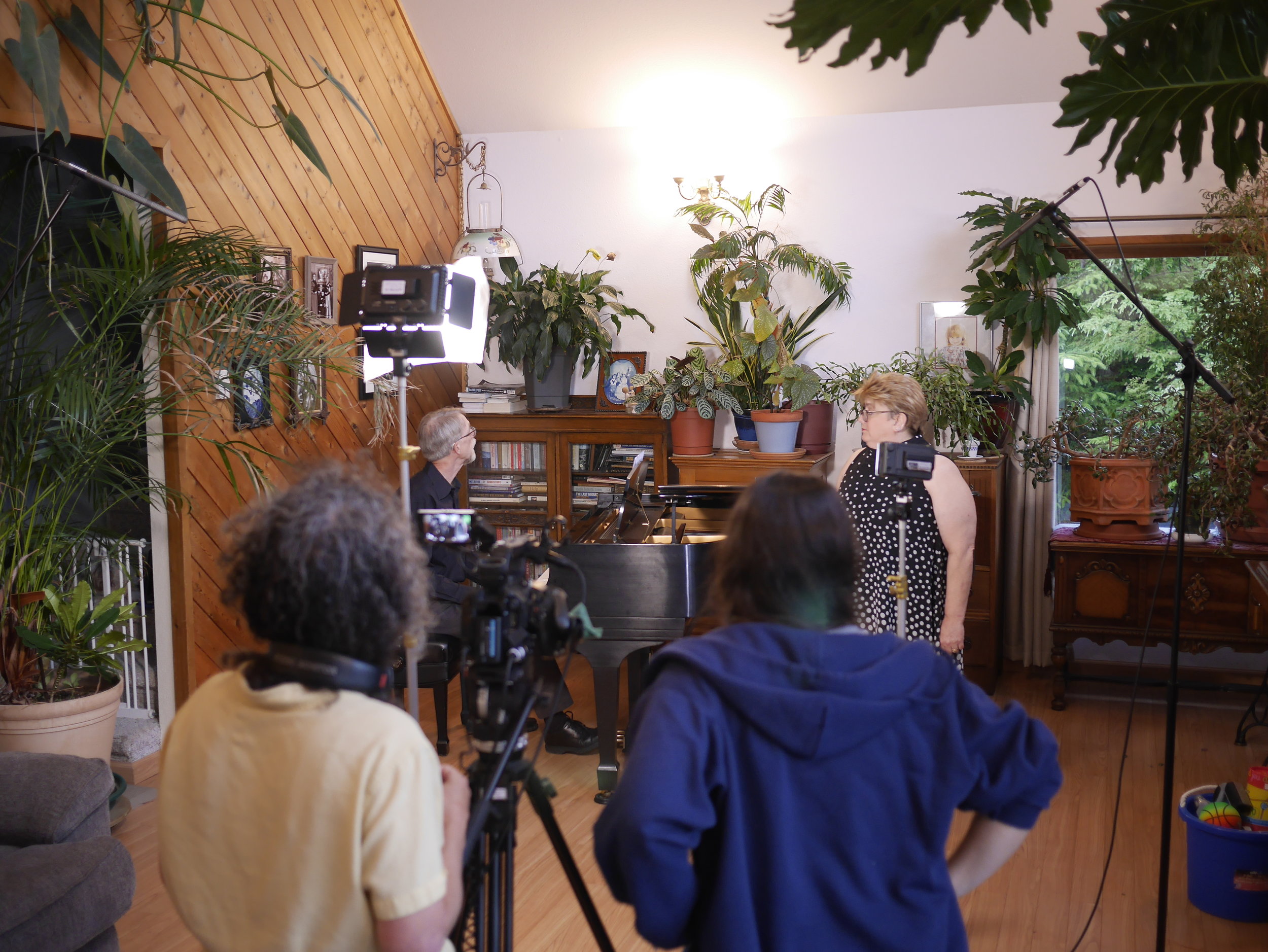14 MILES MODEL
We started developing this project in the summer of 2017 and posted our first episodes that fall. Our goal was to continue 14 Miles into the summer of 2019, produce 25 to 30 episodes and inspire other projects. We posted our 37th episode in November, 2019 and are continuing to share what we learned.
14 Miles is based upon the simple concept of telling stories within a specific time and place, and involving community members in the process. This approach can be taken with still photography, painting, audio, writing or, as with 14 Miles, through short videos. It can be used by a community group, by individual artists, a high school class, or students in university film or radio programs.
Step 1: Ground yourself in place.
Pick a place or organization: an urban neighborhood, a village in rural Alaska, a workplace, or even more specific communities within, such as a local street market or a senior center. Any microcosm that you hope to better understand.
Step 2: Find Your Story.
Think of people, places, issues or themes to cover. What is your criteria? What isn’t shared or talked about? Whose story isn’t being shared? What are your goals in terms of what you want to learn or express? How will the individual stories you create connect?
Step 3: Find Your Real Story.
Your focus should be embracing empathy, and having an openness to wherever that may lead—humor, conflict, small pearls of wisdom. Push past the surface and the factual—try to find layers and go deeper.
Step 4: Determine the logistics.
Pick your media: Which format will you use? Set your timeframe. Is this a semester project? A year-long one? Two weeks? How will you share the work?
Step 5: Do it!
Pick the first people or place that portray the themes and issues you want to address. Research. Involve people in the process. Storyboard or sketch your ideas. Film. Write. Paint. Edit. Repeat.
Step 6: Collaborate and Seek Feedback.
Test the rough versions with collaborators and participants. Revise and complete the first episodes. Share and encourage feedback.
Our episode criteria (Set your own!):
Does the episode make something invisible more visible, help us pay attention to something, or reveal it a new light?
Give insight into an institution, individual or issue?
Add to the sense of the journey we set up in the beginning?
Promote some kind of useful conversation or reflection?
Touch or delve into a social issue or challenge in a way that opens dialogue and doesn't point, separate, or ridicule?
Resonate and give a sense of community, place, time, or relationship to the environment? (Seeing and being in the world)
Expose or share a sense of vulnerability, hope, kindness, compassion, curiosity, commitment, endurance, insight, skill, or knowledge?
Fit into some question, something that we can fit into a model or template for others to use? (i.e. Looking at something that you don’t understand, documenting the impact of a change, showing the community coming together, etc. )
Will it resonate with viewers locally as well as those outside Sitka, who may have never been here?
Will it hold up, be applicable in some ways in one or two or five years?
Our Lessons from 14 Miles
• The project is as much about relationships and connections as it is about screening and sharing finished work.
• Give collaborations time. Listen and be ready to adjust your thinking.
• Think process. Engage your community in thinking about what it means to live in a place or be part of something,
• Stories are about essence. They can’t list all the ingredients on a shelf and they’re not cookbooks. There may be an expectation for you to cover lots of stories and ground, but you can’t do it all. And there will be critics.
• As we released episodes there was a growing sense of ownership of the project by the community. We got ideas for new episodes and collaborations, discussion about the questions we wanted to raise on the street and grocery store as well as at live event and on social media threads.
• Screen and present your work in multiple ways. Encourage sharing of episodes, be it via social media, a live event or use by your partners and collaborators. It helps the work travel.
• Doing this type of work changed the way we saw and understood the community! Our connections grew too!
Want to try to do your own 14 Miles like project?
We’re available to encourage, coach and help you shape your project.







